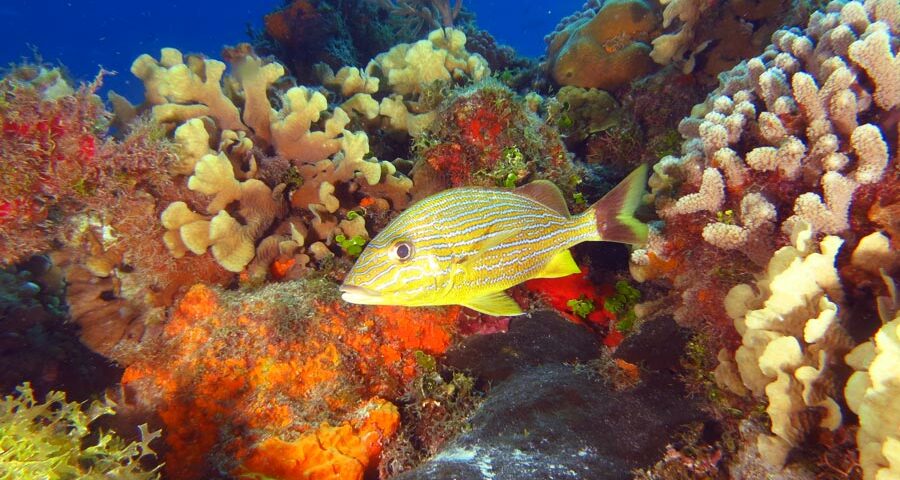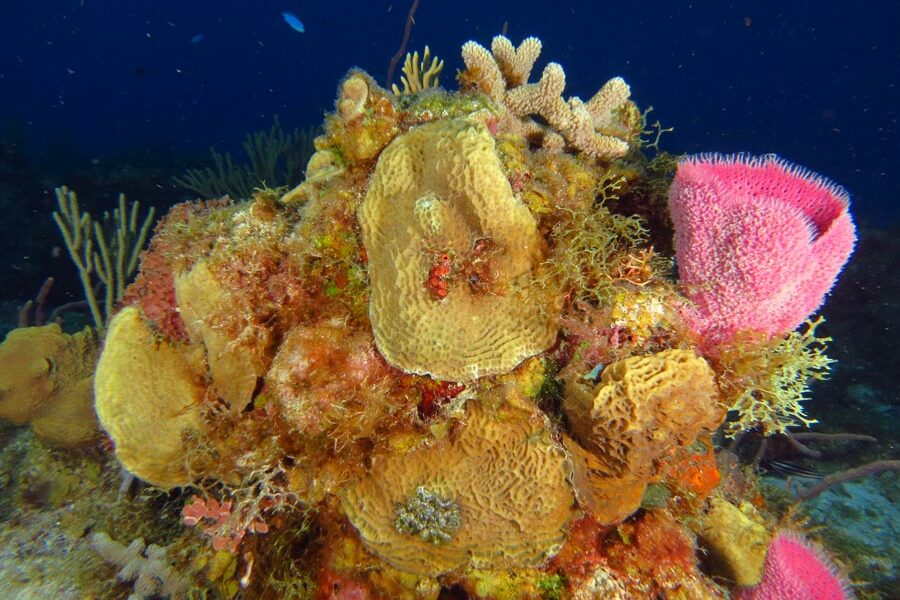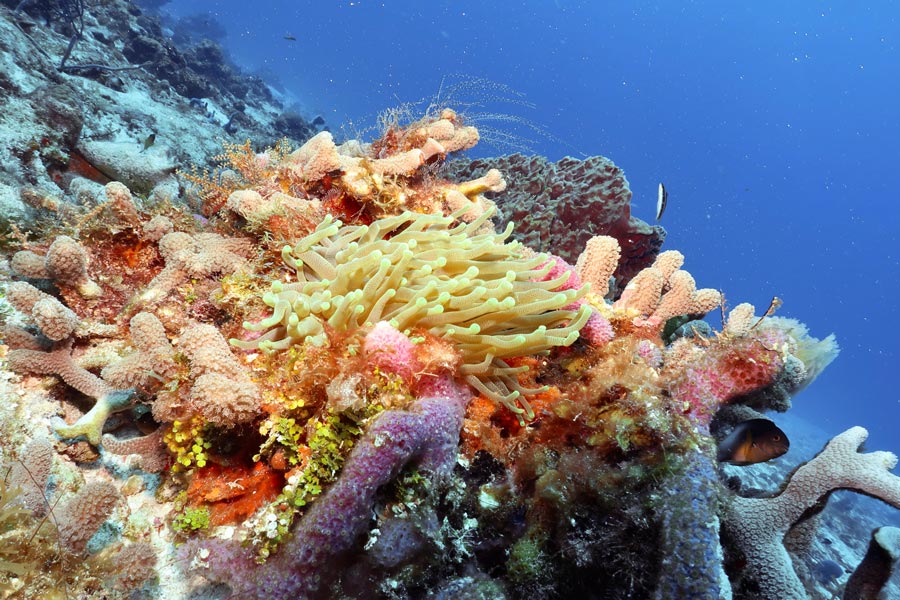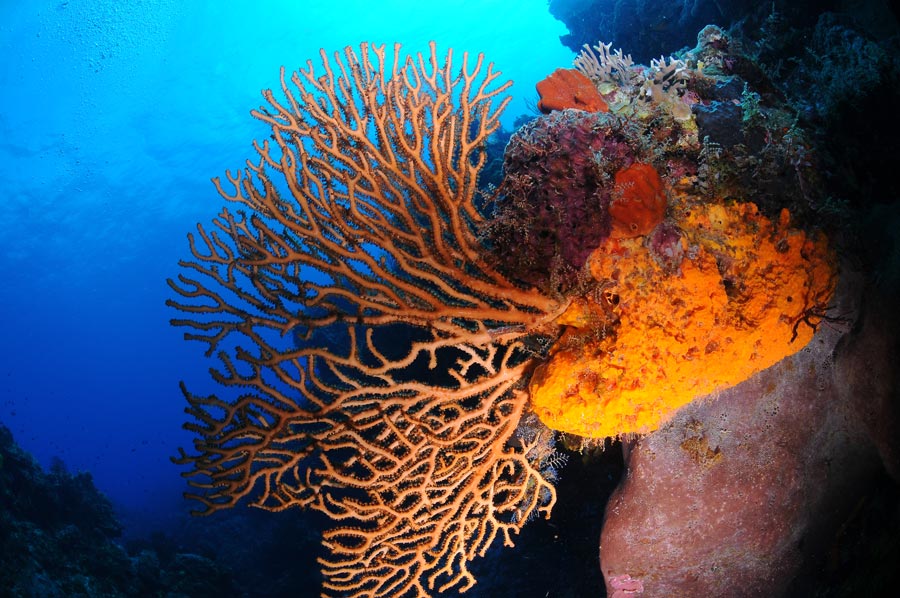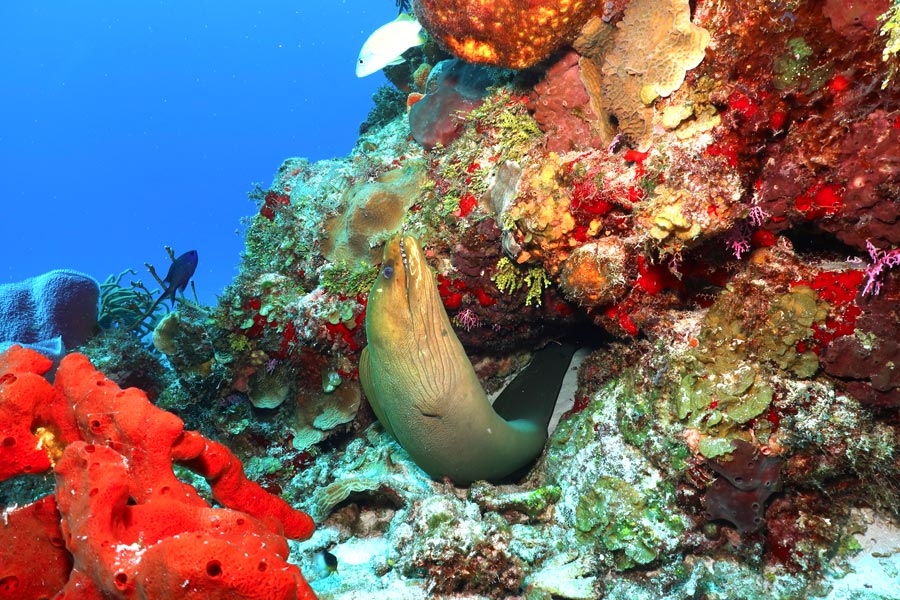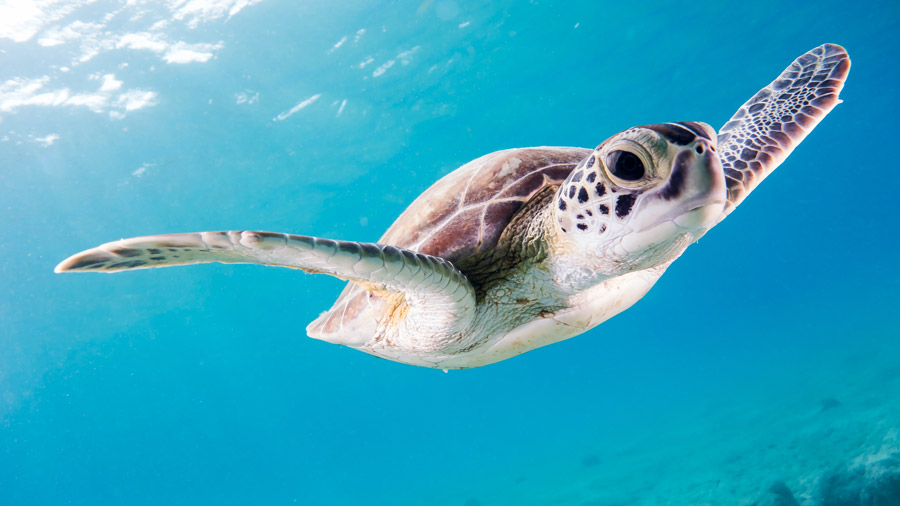Protecting Coral Reefs as A Scuba Diver
10. Coral Reef Conservation Implies Don’t Harvest Them
One of the most prevalent ways in which divers have a negative impact on coral reefs is through physical contact. Although it may be an unintentional error, the consequences can be severe, particularly if it occurs repeatedly. It is essential to bear in mind that it is our responsibility to refrain from touching the coral reefs.
Additionally, it is crucial to recognize that the formation of a coral reef is a lengthy process that takes several decades. By touching the corals, we impede this natural progression. Moreover, if someone were to remove a fragment of coral, the ramifications would be even more detrimental.
Furthermore, it is vital to understand that the collection of corals, animals, or plants is strictly forbidden by law in numerous countries. Violations of these regulations often carry substantial penalties.
11. If you leave only bubbles, you protect the coral.
As divers, we are nature lovers, so when we scuba dive, we must also take care not to leave any kind of residue. Notice that we are not talking about our own debris only. If you see a plastic bottle, bag, or any other type of garbage, pick it up and correctly dispose of it.
12. The More You Know the More You Protect Corals
Learning scuba diving correctly is as important to your own security, as to protecting the coral reefs. For example, having absolute control of your buoyancy helps you keep the correct distance from the corals and avoid harming them. But that is not all.
All of us adore scuba diving in warm and clear waters where coral reefs live. The more life we find during a dive, the more we enjoy it. However, usually, we do not know what we are really watching. For that reason, it is important to learn about the complexity of these habitats and their importance, not only for the ocean’s health but for the entire planet its survival.
Volunteering is the most efficient way to learn.
13. Volunteering To Conserve Coral Reefs
Sea bed cleanings, coral reef transplantations, coral nursery maintenance, just support conservation organizations …, none of these activities can be done without volunteer divers.
Periodically, Go Green hosts volunteer activities focused on coral reef conservation near Dressel Divers bases. On other occasions, we collaborate with different NGOs. In all cases, those divers who want to help us save coral reefs can sign up for our green events.
You can also join the Go Green community, offer advice and tips, and share your experience with us. Help us protect coral reefs.
To sum up, protecting coral reefs is a crucial mission that requires collective effort. While institutionalized measures and conservation policies play a significant role, individual actions can also make a substantial difference.
As conscientious divers, we have the power to contribute to the protection and preservation of coral reefs, alleviating the environmental pressures they face. The importance of coral reef protection cannot be forgotten, especially in the face of severe threats and challenges. By becoming ambassadors for coral reef protection, scuba divers can lead the way in promoting sustainable practices and raising awareness.
Whether you are a scuba diver or not, there are 12+1 practical tips that you can implement to protect coral reefs, even if you live far away from them. From reducing plastic usage and embracing reusable alternatives to practicing responsible snorkeling and diving, every action counts.
Together, we can ensure the long-term health and survival of coral reefs and the diverse marine life they support. Join us in the mission to protect coral reefs and make a positive impact on our oceans.




